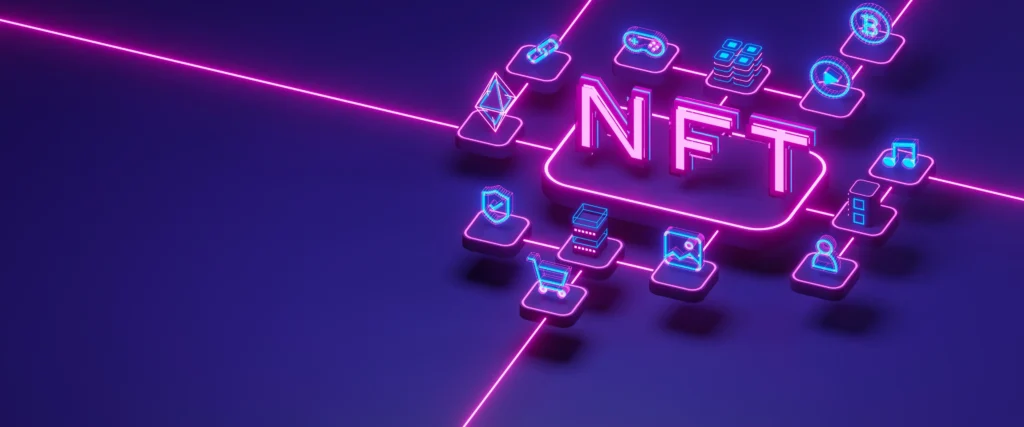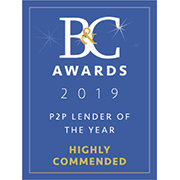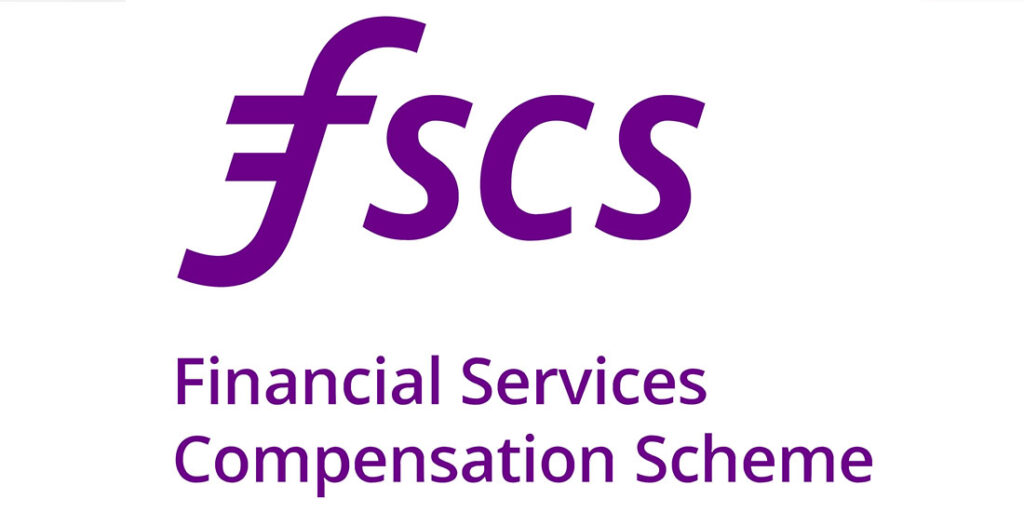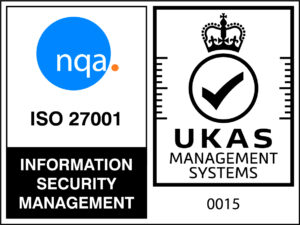
Why are people investing in NFTs?
What are NFTs?
The acronym NFT means “Non-fungible Token.” By Non-fungible, we imply something distinct or one that stands out. Non-fungible items are made up of non-replaceable parts. In contrast to cryptocurrencies, NFTs contain only one unit. Therefore, they cannot be duplicated or exchanged in the same way that money can.
This is for information only. Please always seek professional advice before acting.
The uniqueness of NFTs is confirmed using blockchain technology. This guarantees that a forgery will be immediately detected.
There are a variety of reasons why investors purchase NFTs. Some people are desperate to get their hands on the underlying securities. Others may see the asset getting tokenized as valuable.
Investing in NFTs?
You’ve probably thought about investing if you know non-fungible tokens (NFTs). But have you ever wondered what the benefits and drawbacks are? Before investing in any asset category, it’s smart to educate yourself about it. To begin with, the term NFTs is misleading since they are not an asset.
The investing possibilities of NFTs are the most intriguing feature. First, you must go to a marketplace to buy an NFT. After that, you’ll have to make a digital wallet. Purchasing NFTs using blockchains is a way to diversify your portfolio. Similarly, lowering the cryptocurrency’s availability can add to the value of your NFT with time.
To digitally control non-fungible tokens employ blockchain-based technology. That isn’t to say that buying assets is a terrible idea. If you find assets that you like and can afford, you may consider purchasing them. If the assets are tokenized, you’ll almost certainly be able to take advantage of NFT.
However, be aware of the hazards associated with NFT investments. Additionally, selling NFTs is conceivable and potentially lucrative. However, once you acquire an NFT, you will probably not keep it forever.
The majority of marketplaces will charge a fee for storing and selling your NFT. Just before the asset is up for sales or auction, the markets must verify it. When it sells, the marketplace handles the transfer and distributes your part to you. Presumably, this will involve a hefty profit.
Some NFTs are extremely uncommon and precious.
But, making one does not necessitate being a master artist. Anyone can create an NFT. ‘Minting’ digital assets are the way of forming an NFT. After that, all you have to do is build digital wallets and post them on a platform.
Pros of NFTs
NFTs Improve Market Performance
NFTs’ most evident advantage is their ability to increase market efficiency. Converting a tangible asset to a digital one can speed up procedures, reduce middlemen, improve distribution networks, and increase security.
A perfect example is currently playing out in many corners of the art community. Artists can now communicate with their audiences owing to NFTs. As a result, expensive agents and time-consuming transactions are no longer necessary. Furthermore, digitizing artwork improves the verification system, expediting operations and lowering expenses.
NFTs also have uses outside of markets. For example, they may eventually become useful tools for managing and controlling critical data.
Fractionalization of Physical assets
Some assets, such as estate, artworks, and expensive jewellery, are difficult to fractionalize today. A computerized replica of a structure is better to split among several proprietors than an actual one.
Certain asset markets can be considerably expanded by digitization. As a result, there is more volatility and higher pricing. But, individually, it can transform the way economic portfolios are built. This enables more variety and accurate positioning.
The Blockchain Technology
NFTs are made with Blockchain technology. This is a method of storing data which is hard to hack, change, or destroy. It’s a transaction-tracking distributed ledger. It is reproduced and disseminated to all members of a peer-to-peer network.
The legitimacy and chain-of-ownership records for all NFTs maintained on the blockchain are unique. This ensures that they are not mishandled or stolen. In addition, data cannot be modified or removed once it has been annexed to the chain.
This ensures that the exclusivity and validity of each NFT are retained, encouraging a level of trust.
Diversification
NFTs are not the same as traditional assets like bonds and stocks. They have unique characteristics and provide advantages. However, ownership comes with its own set of risks. The risk level of NFTs is unlike that of typical asset types.
Consequently, by including NFTs in a portfolio, you may be able to increase their effectiveness. Essentially, this implies having a higher risk-reward ratio.
NFTs are open to everyone.
Everyone can participate in tokenized securities. As a result, ownership of assets that have been preprocessed into an NFT can be traded more accurately and quickly among persons worldwide.
Cons of NFTs
Liquidity and volatility
The marketplace for NFTs is not particularly liquid due to its youth. NFTs are not well-known. Therefore there are few possible sellers and buyers. As a result, trading NFTs can be challenging, particularly during times of stress. It also implies that NFT pricing is quite erratic.
NFTs are not always profitable.
NFTs have no earning potential for their owners. The return on NFT investments, like those on antiquity and other collections, are solely dependent on value increase. That’s not something you can rely on.
Fraud Can Be Perpetuated Using NFTs
While the trustworthiness of a blockchain cannot be questioned, NFTs can be utilized to deceive people. Indeed, several artists recently reported finding their works for auction as NFTs on digital sites without their permission.
This goes against the purpose of using NFTs to promote the selling of paintings. An NFT’s value proposition is that it uses a unique token to validate a tangible piece of artwork. This guarantees that whoever possesses the token also possesses the original piece of art.
Someone creating a digital replica of the actual piece, attaching a token to it, and selling it poses a severe concern. There is no reference to the actual work there. Instead, the token has been connected to a forged copy.
NFT production consumes a lot of energy
The Ethereum blockchain currently supports the majority of NFTs. However, proof of work is an energy-intensive operational protocol that it employs. A typical NFT transaction consumes around a day and a half’s worth of electricity.
What is the future of NFTs?
NFTs are a fascinating invention that is gaining popularity as their applications expand. Unfortunately, the attention-getting costs on certain NFTs are adding fuel to the flames. When considering purchasing these assets, wise investors must proceed with caution. This is due to the illiquidity and volatility of NFTs.
It’s not a good time to purchase them to get high price returns. The true significance of NFTs is in their ability to change the method markets work. They also help us better monitor and handle sensitive data. The possibilities are endless here.
Nonetheless, if you wish to join this digital revolution and view NFT possession as a viable option, please don’t forget to exercise caution. Try not to put too much money into NFTs, and always aim for low-cost options. You could end up in a social and financial bind if you don’t.
Conclusion
Overall, if you’re engaged in the world of art and want to take advantage of current financial trends, NFTs might be a terrific investment. They’ve been on the rise for about five years, and their worth has skyrocketed. Getting in the queue as soon as possible may give you a good opportunity of making the profits you desire.
Only because NFTs are popular does not imply that they won’t be phased out in the coming future. But, for the time being, they are a simple investment choice and a method to acquire original digital art.
NFTs offer advantages and disadvantages, but investing in any asset just because it is tokenized requires caution. Whether or not an asset’s possession is revealed by a blockchain, investment basics remain the same.
This is for information only. Please always seek professional advice before acting.













